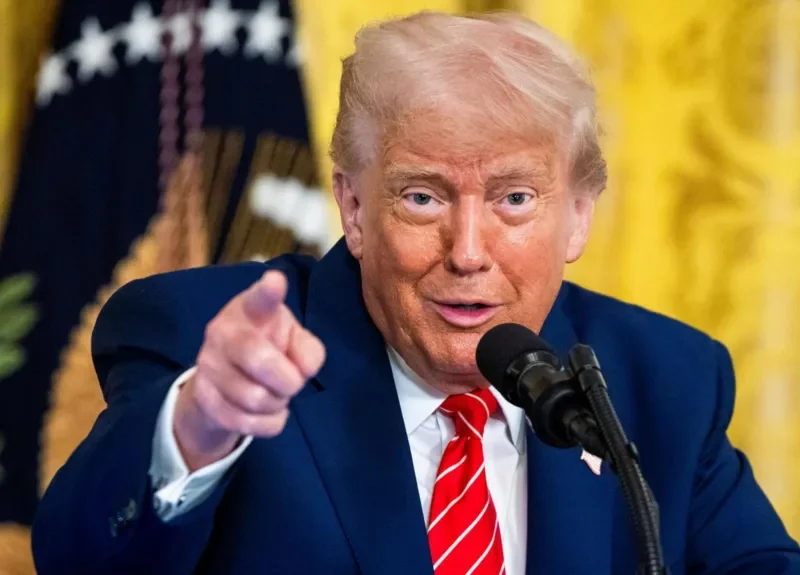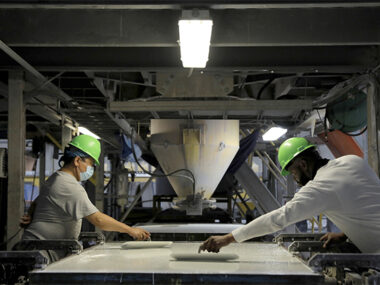US President Donald Trump has suggested that tariffs on Chinese goods could decrease as top trade officials from the two largest global economies prepare for discussions.
He noted, “You can’t get any higher. It’s at 145, so we know it’s coming down,” referring to the new import duties of up to 145% imposed on China after his return to office.
Trump made these remarks during an event to announce a tariff agreement with the UK, marking the first such deal since he imposed heavy levies on countries worldwide in April.
The upcoming meeting in Switzerland this weekend signals a potential de-escalation in the trade conflict that has caused significant market instability. Trump described the talks with China as “very friendly,” expressing hope that they would proceed smoothly.
China’s Vice Foreign Minister, Hua Chunying, also expressed optimism, stating that Beijing has “full confidence” in managing trade issues with the US.
Both Washington and Beijing are facing increasing economic pressure, according to Dan Wang from Eurasia Group, who told the BBC that recent signals indicate a possible move toward de-escalation.
The announcement of the talks earlier this week was seen as a positive first step toward reducing tensions, though experts caution that these discussions may be lengthy.
Former US trade negotiator Stephen Olson predicted that “systemic frictions” between the US and China will persist for some time, and any tariff reductions from the meeting are likely to be “minor.”
Initial negotiations will be led by US Treasury Secretary Scott Bessent and China’s Vice Premier He Lifeng. However, Olson suggested that any final agreement would require both presidents’ active involvement.
Other trade experts, including Eswar Prasad, former head of the IMF’s China division, warned that even if the new tariffs were lifted, significant issues would remain. “A realistic goal is probably at best a pullback from the sky-high bilateral tariffs, but that would still leave high tariff barriers and other restrictions in place,” he said.
Recent data showed that China’s exports to the US dropped by over 20% in April compared to the previous year, though its overall exports rose by 8.1%.
The US-China talks come shortly after the UK became the first country to secure a tariff deal with the Trump administration. Under the agreement, the US will reduce import taxes on certain British cars and allow tariff-free imports of some steel and aluminum. Other key UK industries will also benefit from relief from some new tariffs.
Countries worldwide are rushing to strike similar deals before additional US import taxes take effect next month. Trump had announced “reciprocal tariffs” on several countries in April but paused them for 90 days to allow negotiations.











